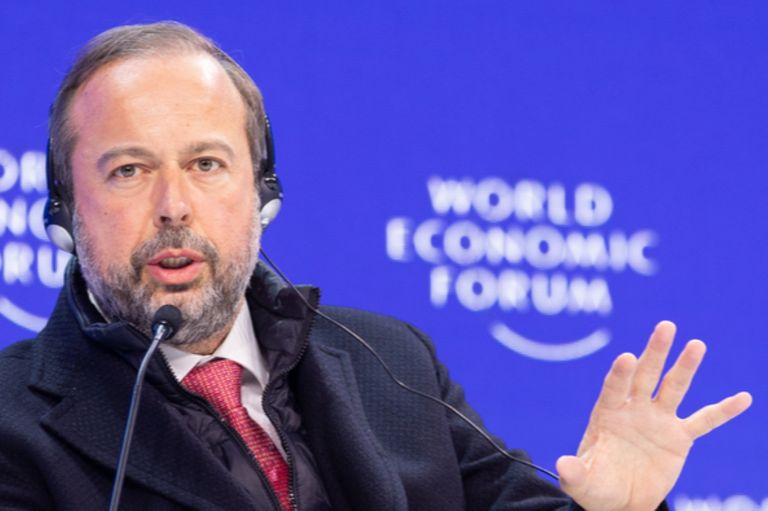Notícias
DAVOS ECONOMIC FORUM
Brazil's Minister of Mines and Energy defends sustainability for a fair and inclusive energy transition

- Credit: World Economic Forum / Benedikt von Loebell
"Without sustainability there is no salvation for the economy," said the Minister of Mines and Energy, Alexandre Silveira, during the plenary session "Moving forward with the Energy Transition" in Davos, Switzerland, during the World Economic Forum. Silveira advocated a transparent discussion with the world, especially the industrialized countries, to equalize and value the energy transition, highlighting Brazil's example in drawing up and implementing public policies aimed at economic development with social benefits and the preservation of the planet.
"Brazil is implementing public policies to enhance the green economy. We understand that without sustainability there is no salvation for the economy. To this end, we are using all our potential and our investments. The energy transition is no longer an ideological or academic discussion, everyone is converging in understanding the importance of the energy transition for the preservation of the planet. But it has another clear vector, which is the economic vector, the new economy of society, which is the green economy," said the minister.
Silveira stated that it is necessary to find international mechanisms for dialogue, especially with industrialized countries, to reach a common denominator to speed up the energy transition.
"It was very clear that we have to find an instrument that can equalize the issue of energy transition, since we all live in a single ecosystem. There's no point in a country moving forward more forcefully, more quickly, if we don't have a tool that can put a value on the issue of energy transition. And the most concrete tool I've seen is the international carbon credit. If we can make CO2 emissions more expensive, we will speed up the energy transition a lot in the world and it will be fair, inclusive and faster”, said the minister.
Alexandre Silveira remarked that Brazil is an example to the world in the energy transition and a fertile ground for investment. The minister highlighted the country's potential, with its 88% clean and renewable energy matrix and recent investments in transmission lines and decarbonization programs in the Amazon and the mobility sector, encouraging biofuels. He also pointed out that Brazil has political and social stability and a stable regulatory environment that respects contracts. Finally, he stressed that the energy transition also aims to combat inequalities.
"Brazil is fertile ground for investment, and one of the ways we can make this a fair transition is to reindustrialize, to manufacture our wealth, generating jobs, income and fighting inequality. This is the great purpose of the public policies implemented in Brazil under President Lula's leadership," he concluded.